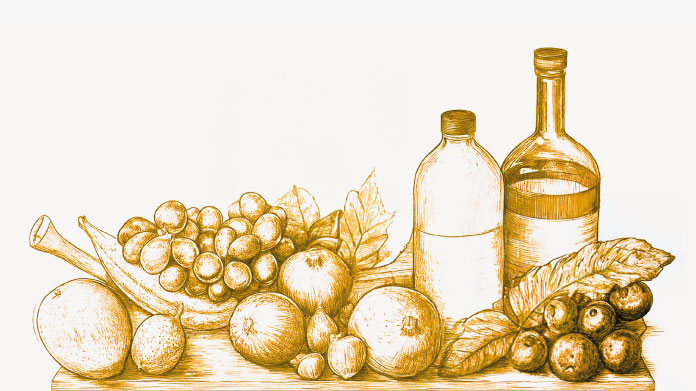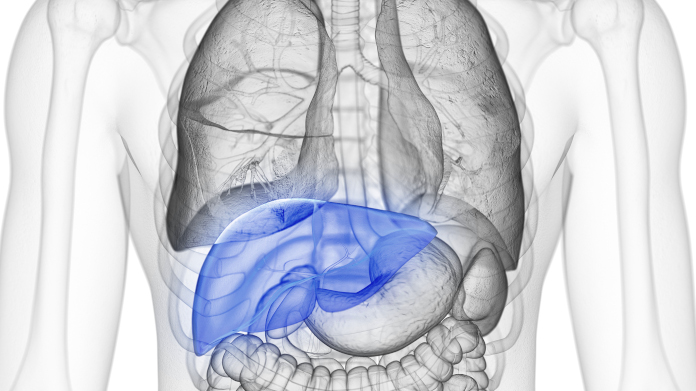Paleo diet: principles, benefits, what to eat and what to avoid
Inspired by the diet of our Paleolithic ancestors, the paleo diet has been very much in vogue for several years now. Spotlight on this healthy diet - its principles and effects.

What is the paleo (or paleolithic) diet?
As its name indicates, the paleo diet (or ‘caveman’ diet) essentially means following a nutritional plan based on the eating habits of our ancestors in the Paleolithic period, between 3 million and 10,000 years ago. And the fact that more than 3 million Americans are thought to be following it today just goes to show how successful it is (1).
Though its popularity in Europe began to grow in the 2000s, influenced in particular by a number of American celebrity proponents, it was first written about in 1975, by the medical anthropologist Dr S. Boyd Eaton.
Agriculture may have distanced us from the food we’re really designed to eat
In a landmark article, Dr Eaton theorised that between the appearance of Australopithecus and the first humans (a period spanning around 1.5 million years), the human genome adapted to a particular type of diet specific to hunter-gatherers. This diet was maintained for several million years, until the advent of agriculture, around 12,000 years ago (2).
Since then, the human environment and diet have undergone rapid changes, with the addition, in particular, of more and more simple carbohydrates, grains, and more recently, processed products. Yet it may take at least 1 million years for the human genome to adapt to a new environment.
Dr Eaton concluded that the last 12,000 years of evolution are responsible for almost all the common health issues we face today:elevated blood pressure, excess weight, fluctuating insulin levels, cardiovascular problems, etc. (3)
That’s why he recommended adopting a diet that’s as close as possible to that of our Paleolithic ancestors.
Paleo diet: which foods should you avoid?
To properly follow a paleo diet, you obviously need to start by banning all processed products such as biscuits, spreads, sauces, etc.
But ideally, you should also eliminate all products that come from farming, including:
- grains and the products made from them: pasta, flour, bread, cakes, etc. ;
- pulses;
- milk and dairy products: butter, cheese, etc. ;
- and obviously alcohol, beer, wine, etc. (4)
And which foods should you prioritise?
In contrast, the paleo diet is based fundamentally on a high level of protein, and fruits and vegetables. Protein should represent 25%-40% of your daily calorie intake (5):
- in terms of animal-source protein, opt for lean meat like game (grass-fed or acorn-fed, etc, no sileage), wild-caught fish (not farmed), and eggs;
- and for plant-source protein, choose nuts, such as hazelnuts and almonds, etc.
As for fats, there are differing views (6): some more radical proponents of the diet advocate banning oils altogether, on the basis that olives and other oilseeds already contain enough. Others take a more flexible line, believing you should include plant oils in order to make the paleo diet more accessible and easier to maintain on a day to day basis.
Because another key pillar of the paleo diet is that it is considered to be a complete way of life and not a diet aimed at losing weight. It is a ‘diet for health’.
More precisely, the paleo diet advocates that just one of your day’s meals should include animal protein, and the rest of the time, you should fill up on fruits, vegetables, nuts and oilseeds.
Benefits of the paleo diet
As can be seen from the list of ‘paleo-friendly’ foods, this diet is surprisingly similar to the acid-base diet. This type of ‘ detox ’ involves avoiding dairy products, grains and pulses and concentrating instead on oily fish, lean meat, eggs, fruit and vegetables. The aim is to prioritise alkaline foodsto compensate for the excess acidity in modern diets.
And while one of the quickest and most visible effects is a loss of fat mass (8), due to the elimination of simple carbohydrates, the paleo diet should also mean you feel less tired and that your digestion improves (9).
The important thing to remember is that our ancestors can teach us much about current deficiencies
A key facet of the paleo diet theory is that it highlights just how far we’ve moved away from this mode of eating and way of life since the advent of agriculture and modern life.
For example, when our ancestors hunted for food, they would have eaten almost the whole animal, including its cartilage. This is rich in glycine, an amino acid that’s essential for many physiological processes. By only eating muscle meat, we’re therefore reducing our intake of glycine. We can, however, still obtain it from turkey and pork knuckle, or at higher levels from a glycine supplement(such as Glycine).
What’s more, our ancestors lived outdoors in the open air. Their skin would therefore have been constantly producing the vitamin D their bodies needed, with the remainder provided by their diet. Nowadays, of course, we tend to spend much more time indoors.
This being so, it’s important to regularly eat vitamin D-rich foods (cod liver, kippers, porcini mushrooms …) and if necessary, follow the advice of the French Academy of Medicine by supplementing with vitamin D, especially in winter. For optimal efficacy we’d recommend taking a vitamin D3 supplement (such as Vitamin D3 5000 IU).
Dietary supplements for followers of the paleo diet and paleo-vegetarians
Be aware that by strictly following a paleo diet, you may be at risk of a lack of carbohydrates, fibre, calcium, vitamin D and B vitamins .
For paleo-vegetarians, who exclude animal protein from their paleo diet, the risk of deficiency is even greater. To compensate for the deficits associated with this type of diet, they should consider taking the following supplements:
- vitamin B12 (with, for example, Methylcobalamine) ;
- carnitine (with L-Carnitine Formula) ;
- creatine (with 3-Creatine) ;
- and zinc (with Zinc Orotate).
References
- JOHNSON, Adrienne Rose. The Paleo diet and the American weight loss utopia, 1975–2014. Utopian Studies, 2015, vol. 26, no 1, p. 101-124.
- EATON, S. Boyd et KONNER, Melvin. Paleolithic nutrition: a consideration of its nature and current implications. New England Journal of Medicine, 1985, vol. 312, no 5, p. 283-289.
- O'KEEFE JR, James H. et CORDAIN, Loren. Cardiovascular disease resulting from a diet and lifestyle at odds with our Paleolithic genome: how to become a 21st-century hunter-gatherer. In : Mayo Clinic Proceedings. Elsevier, 2004. p. 101-108.
- CORDAIN, Loren. AARP The paleo diet revised: Lose weight and get healthy by eating the foods you were designed to eat. John Wiley & Sons, 2012.
- FREIRE, Rachel. Scientific evidence of diets for weight loss: Different macronutrient composition, intermittent fasting, and popular diets. Nutrition, 2020, vol. 69, p. 110549.
- ROCCISANO, Dante, KUMARATILAKE, Jaliya, SANIOTIS, Arthur, et al.Dietary fats and oils: some evolutionary and historical perspectives concerning edible lipids for human consumption. 2016.
- Boers, I, Muskiet, FA, Berkelaar, E, et al. (2014) Favourable effects of consuming a Palaeolithic-type diet on characteristics of the metabolic syndrome: a randomized controlled pilot-study. Lipids Health Dis 13, 160
- OBERT, Jonathan, PEARLMAN, Michelle, OBERT, Lois, et al.Popular weight loss strategies: a review of four weight loss techniques. Current gastroenterology reports, 2017, vol. 19, no 12, p. 1-4.
- SEIGNALET, Jean. L'alimentation ou la troisième médecine. Editions du Rocher, 2012.
Keywords
59 Days
Very happy with the order and the…
Very happy with the order and the prompt team's response to an identified issue with my order.
KUQI Fatmir
66 Days
15 + years as a customer
I have been using their products for over 15 years as I find both the quality and pricing excellent.
Del Chandler
68 Days
Good quick delivery
Good quick delivery
Timothy O Shea
69 Days
Good service
Good communication following order. Product came within the time frame and was well packaged. The only confusing thing I found was in checking out. For some reason it is not clear how to do so and the current system should be improved.
Joe O Leary
78 Days
Simple and fast.
Simple and fast.
Nina
78 Days
Great product was definitely what is…
Great product was definitely what is says and arrived on without issue
customer
84 Days
I love reading those product facts on…
I love reading those product facts on Supersmart.com. Effective health products making permanent changes to my blood-work results and testes. However, I also have to order capsules from other websites.
NORDGULEN Olav
87 Days
Great products
Great products Very easy to choose, to order… and to get at home
Federica mastrojanni
90 Days
Service rapide et bons produits
Service rapide et bons produits
customer
91 Days
Good products and fast delivery
Good products and fast delivery
Trusted
96 Days
Does what it says on the can
I believe in this product Made to highest standard The ordering process is straightforward Delivery time prompt Excellent product, excellent service Happy customer ❤️
Sheba Kelleher
101 Days
Excellents produits
Excellents produits. Rien à dire si ce n'est qu'ils sont très chèrs.
MJS_France
103 Days
Very good supplement
Very good supplement
Glaveash
104 Days
Supersmart supplements are really…effective
Supersmart supplements are really effective and have helped me and family members and friends to improve their health including some of us with severe health problems including some with no existing medical treatment.
Anne Georget
105 Days
SuperBig Supersmart
SuperBig Supersmart
Pierre



